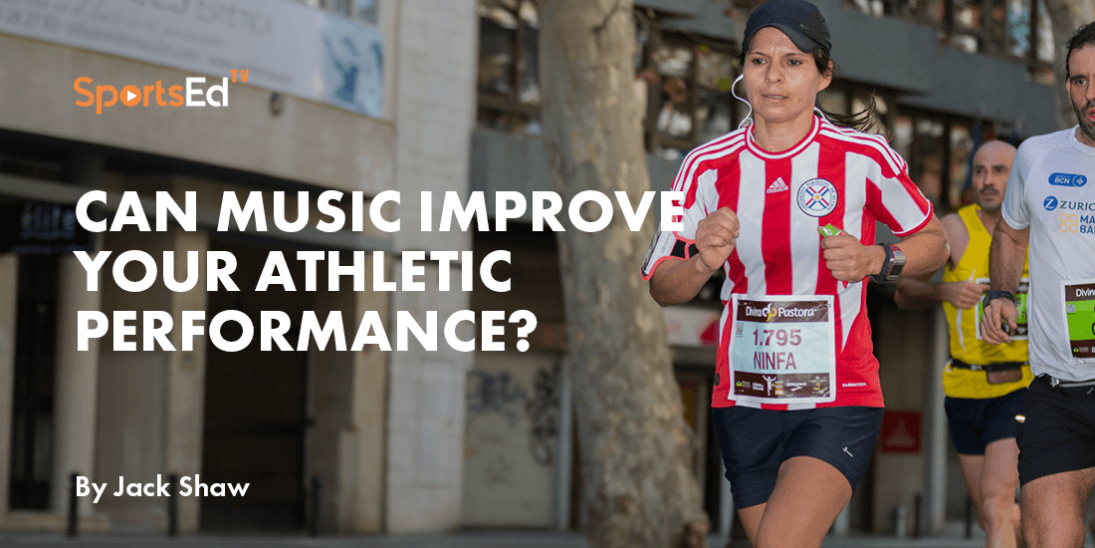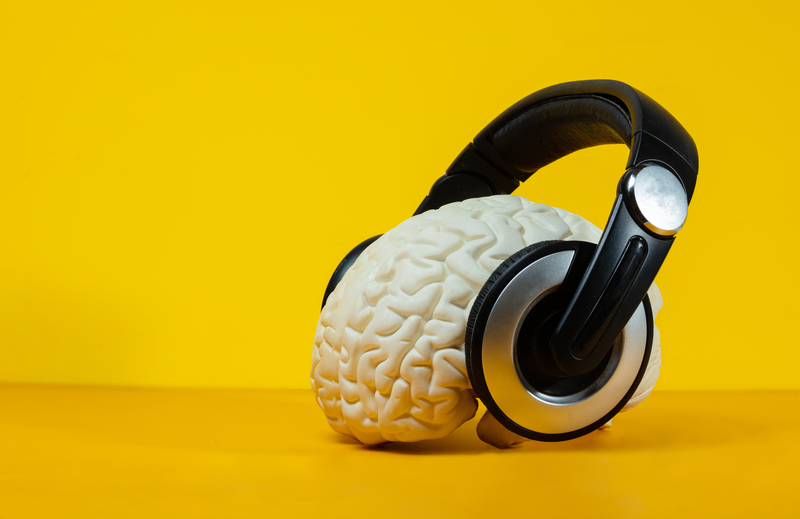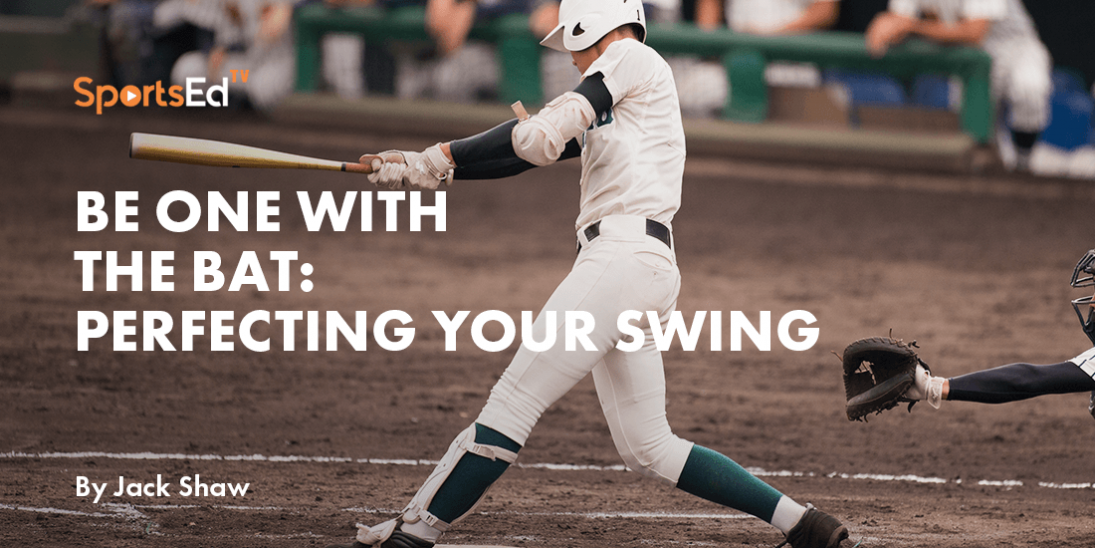Baseball, Basketball, Health, Mental Health, Mental Toughness, Physical Education, Sports Psychology, Strength And Conditioning, Taekwondo, Tennis
Welcome and thanks for visiting...

Can Music Improve Your Athletic Performance?

It’s no secret that music can profoundly affect mental and emotional states. How does it impact physical abilities? Can athletes boost their productivity by listening to certain genres or songs, or does it all come down to personal preference? Find out if music can improve your athletic performance.
How Music Affects the Brain
You must learn how music affects your brain to understand its impact on athletic performance. When you listen to music, your nervous system’s auditory cortex goes into hyperdrive to process all the sounds. This spike in activity triggers a chain reaction that alters your mood and motor functioning.

Psychotherapist Desiree Silverstone explains how emotions and movements are connected. “When you hear a song, your auditory cortex — the part of your brain responsible for processing sound — is activated. This activates other areas of your brain, including the limbic system — responsible for emotion — and the motor cortex, which controls movement.”
Music is also a powerful catalyst for the release of dopamine in the brain. Dopamine is the “happy chemical” and the most important neurotransmitter for your cognitive functions, emotions and behaviors. At the same time, it reduces the release of the stress hormone cortisol and helps regulate stress levels.
Over time, music can create more neural connections in the brain — particularly the amygdala and hippocampus, which are responsible for memories and emotions. The cerebellum, which helps regulate rhythm, balance, and hand-eye coordination, also forges new connections when listening to music.
From a psychological perspective, music is also an important part of the human experience. Singer-songwriter Caroline Jones provides a poetic description of music as a “profoundly powerful force that touches the human heart in a way that nothing else can.” People have been singing songs to lift their spirits since the dawn of the species.
Music Impacts Athletic Performance in Other Ways, Too
Based on music’s powerful neurological and psychological effects, it’s easy to see why it can improve athletic performance. Music is almost like a performance-enhancing drug, giving you a physiological boost that other auditory stimuli can’t replicate. It triggers powerful emotions and puts your body in rhythm, putting you in the zone to unlock your full potential.
These effects aren’t the only ways music impacts athletic performance. Here are three other benefits you may experience from listening to music during workouts or practice sessions.
1. Reduces Perceived Exertion
Listening to music during athletic activities is a great way to reduce your perceived exertion and stress. Exposure to a pleasurable song makes the pain and exhaustion of lifting weights or playing sports more tolerable. It serves as a healthy distraction from your aching muscles and rising heart rate, giving your strength and endurance a slight boost.
A three-year study of elite weightlifters clearly showed that music improved the quality of their training. Among the participants who listened to music, 98% increased their sets and reps and could lift more weight. It’s important to note that the music was self-selected, which allowed each person to create an ideal listening experience.
2. Blocks Out Distractions
While music distracts you from your body’s aches and pains, it simultaneously blocks other external distractions. It stifles or drowns out background noises, allowing you to focus on the task at hand. This benefit doesn’t only apply to athletics. You can also get a productivity boost by listening to music at work or while doing chores around the house.

Eliminating distractions is crucial for athletic performance because awareness and attention are the biggest keys to unlocking your A-game. You could have all the skills and physical tools, but they don’t mean anything if your mind isn’t completely engaged. Music lets you tune everything out and fully immerse yourself in your athletic pursuits.
3. Creates a Sense of Familiarity
Music can create a sense of familiarity that helps you stay relaxed in high-stress environments. Entering an opposing team’s stadium or visiting a different gym for the first time can be intimidating. Athletes are creatures of habit and hate when something disrupts their routines.
Regardless of your environment, your music playlist is one thing you can always control. If you ever feel anxious before a big game, you can blast some tunes and get back into your comfort zone. Music creates a sense of mindfulness that helps you respond to unfamiliar situations more rationally and constructively rather than panicking.
What Types of Music Should Athletes Listen To?
Although everyone has a unique taste in music, some genres and song types are more beneficial to athletes than others. When you’re in the middle of an intense workout or getting ready for a big game, you need music with passion and enthusiasm. Here are some key qualities athletes look for when adding songs to their playlists:
â Upbeat notes
â High beats per minute
â Heavy bass
â Syncopated rhythms
â Exciting beat drops
â Lyrics that appeal to emotions
When you think of these qualities, several genres should come to mind. Hip-hop features catchy beats and definitive baselines that will get your heart pumping. The emphasis on percussion instruments might even help you get into a rhythm. The lyrics are intense and emotionally charged — perfect for a workout or pregame playlist.
Rock, metal, pop, and electronic dance music (EDM) are other genres that can hype you up. While the sounds widely vary, they’re all packed with energy and have noticeable strengths. Rock and metal have catchy guitar riffs, pop is full of upbeat notes, and EDM has some of the best bass drops of any genre.
Still, personal preference is the deciding factor at the end of the day. If you prefer classical music or another more relaxing genre, go for it. Some people enjoy listening to podcasts or audiobooks. The important thing is to create an experience that gives your mind and body a performance boost.
Experience Music’s Powerful Effects
You've been missing out if you haven’t been listening to music during your workouts or pregame routine. Make a playlist and experience music’s powerful effects for yourself. You should notice an immediate mood change and a spike in energy. No matter your personal taste, every athlete should take advantage of music’s unique auditory experience.







